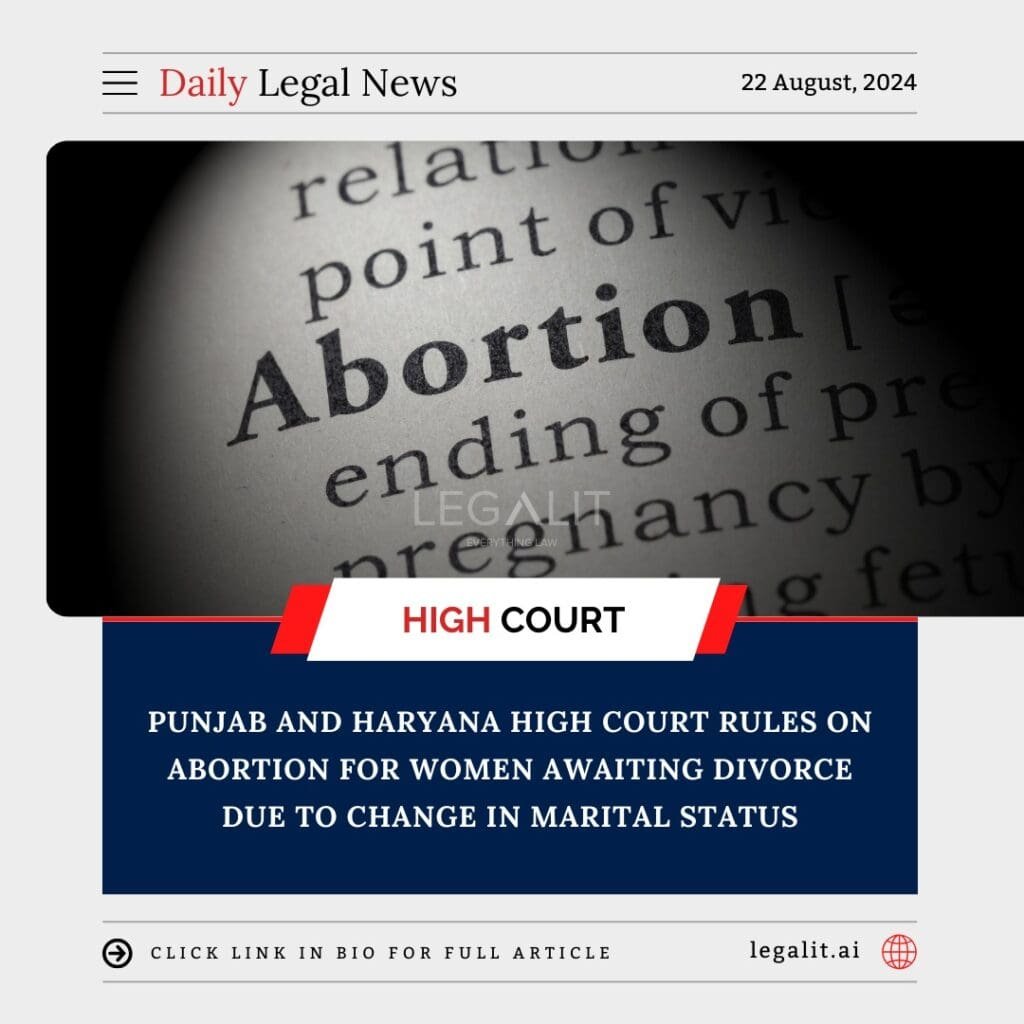
In a landmark decision, the Punjab and Haryana High Court has addressed a significant legal and ethical question: Can a woman awaiting divorce seek an abortion due to a change in her marital status? This ruling provides crucial clarity on the intersection of reproductive rights, marital status, and legal provisions in India.
The case before the court involved a woman who, while in the process of obtaining a divorce, sought permission to terminate her pregnancy. Her request was based on the argument that her changing marital status would significantly impact her ability to raise the child and her overall circumstances. The court’s decision in this case is pivotal, as it touches on the broader issues of women’s autonomy, reproductive rights, and the legal framework surrounding abortion.
Key Aspects of the Ruling:
- Autonomy and Reproductive Rights: The Punjab and Haryana High Court affirmed the fundamental right of women to make decisions about their own bodies. The court emphasized that the right to seek an abortion is an essential aspect of reproductive autonomy, which allows women to make informed choices about their pregnancies based on personal, medical, and socio-economic factors.
- Marital Status Consideration: In its ruling, the court recognized that a woman’s marital status can significantly influence her decision to seek an abortion. The judgment acknowledged that undergoing a divorce can have profound effects on a woman’s emotional, financial, and social well-being. As such, these factors are relevant when considering requests for abortion, as they impact the woman’s ability to provide for and care for a child.
- Legal Precedents and Provisions: The court’s decision aligns with existing legal frameworks that govern reproductive rights in India. The Medical Termination of Pregnancy (MTP) Act, 1971, provides guidelines for abortion, including the circumstances under which it can be legally performed. The court’s ruling reaffirms that women have the right to seek an abortion under various conditions, including changes in personal circumstances such as marital status.
- Impact of the Ruling: The judgment is expected to have far-reaching implications for similar cases across the country. It sets a precedent that recognizes the complex interplay between personal circumstances and reproductive rights. By ruling in favor of the woman, the court underscores the importance of considering individual circumstances in legal decisions related to abortion.
- Support and Counseling: The court also highlighted the importance of providing adequate support and counseling to women seeking abortions. Ensuring that women are fully informed of their options and the potential implications of their decisions is crucial for upholding their rights and well-being.
Broader Implications:
The Punjab and Haryana High Court’s ruling represents a significant step in the ongoing discourse about reproductive rights in India. It reinforces the principle that women’s rights to make decisions about their bodies must be respected, irrespective of their marital status or other personal circumstances. The decision also underscores the need for a legal system that is responsive to the nuanced realities faced by individuals, particularly women navigating complex personal situations.
For women in similar situations, this ruling provides a sense of reassurance and validation. It highlights that their rights and personal circumstances are taken seriously by the legal system. Furthermore, the decision may influence future legal interpretations and policies related to reproductive health and rights in India.
In conclusion, the Punjab and Haryana High Court’s decision to permit abortion for a woman awaiting divorce due to changes in her marital status is a landmark ruling that affirms reproductive autonomy and recognizes the impact of personal circumstances on such decisions. This judgment is a significant development in India’s legal landscape, reflecting a commitment to respecting and upholding the rights of women in complex and challenging situations.